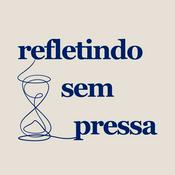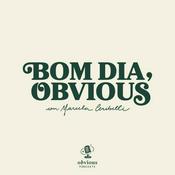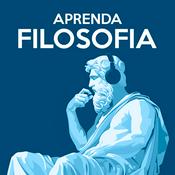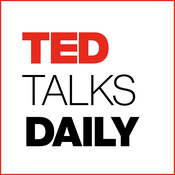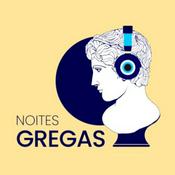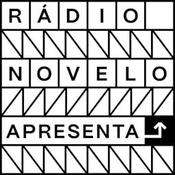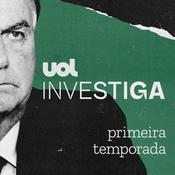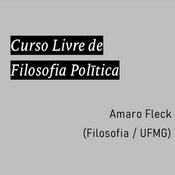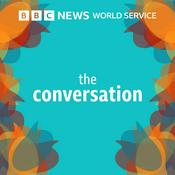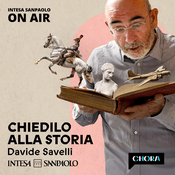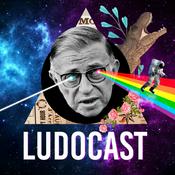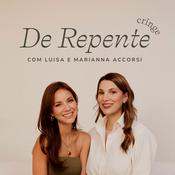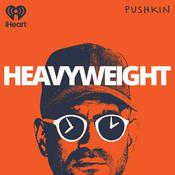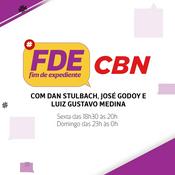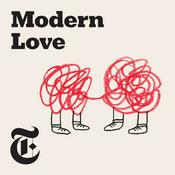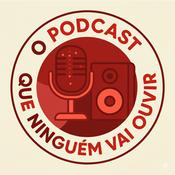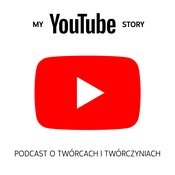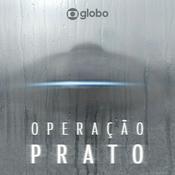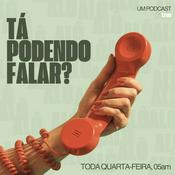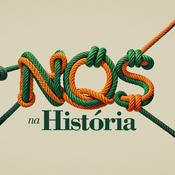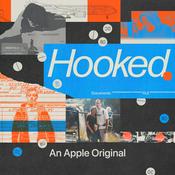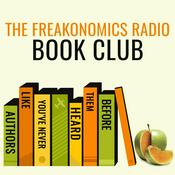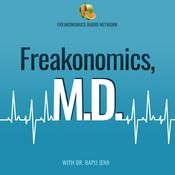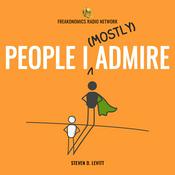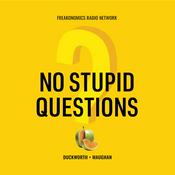888 episódios
- The science says no, at least not in the athletic sense. But the psychic benefits can be large — just ask former N.F.L. star Ricky Williams. He says athletes should consider cannabis a healing drug, not a party drug. Even the N.F.L. is starting to agree. (Part two of a two-part series.)
SOURCES:Angela Bryan, professor, associate chair for faculty development in the department of psychology and neuroscience at the University of Colorado, Boulder.
Ricky Williams, former N.F.L. running back, founder of Highsman.
RESOURCES:"Using A Lab On Wheels To Study Weed From Dispensaries," by Science Friday (2024).
"Exercise-induced euphoria and anxiolysis do not depend on endogenous opioids in humans," by Michael Siebers, Sarah Biedermann, Laura Bindila, Beat Lutz, and Johannes Fuss (Psychoneuroendocrinology, 2021).
"Endocannabinoids mediate runner’s high," by Sudhakaran Prabakaran (Science Signaling, 2015).
"Cannabis and Exercise Science: A Commentary on Existing Studies and Suggestions for Future Directions," by Angela Bryan, Arielle Gilman, and Kent Hutchison (Sports Medicine, 2015).
Run Ricky Run, documentary (2010).
EXTRAS:"Is America Switching from Booze to Weed?" series by Freakonomics Radio (2024).
Hosted by Simplecast, an AdsWizz company. See pcm.adswizz.com for information about our collection and use of personal data for advertising. - In sports, the rules are meant to be sacrosanct. But when it comes to performance-enhancing drugs, the slope is super-slippery. (Part one of a two-part series.)
SOURCES:April Henning, associate professor of international sport management at Heriot-Watt University in Edinburgh, Scotland.
Aron D'Souza, founder of the Enhanced Games.
Floyd Landis, former professional cyclist, founder of Floyd's of Leadville.
Louisa Thomas, staff writer at The New Yorker.
RESOURCES:Doping: A Sporting History, by April Henning and Paul Dimeo (2022).
"The Man Who Brought Down Lance Armstrong," by Matt Hart (The Atlantic, 2018).
Cycle of Lies: The Fall of Lance Armstrong, by Juliet Macur (2014).
Positively False: The Real Story of How I Won the Tour de France, by Floyd Landis (2007).
Alice's Adventures in Wonderland, by Lewis Carroll (1865).
EXTRAS:"Has Lance Armstrong Finally Come Clean?" by Freakonomics Radio (2018).
Hosted by Simplecast, an AdsWizz company. See pcm.adswizz.com for information about our collection and use of personal data for advertising. - They used to be the N.F.L.’s biggest stars, with paychecks to match. Now their salaries are near the bottom, and their careers are shorter than ever. In this updated episode from 2025, we speak with an analytics guru, an agent, an economist, and some former running backs to understand why.
SOURCES:Brian Burke, sports data scientist at ESPN.
Roland Fryer, professor of economics at Harvard University.
LeSean McCoy, former running back in the N.F.L., co-host for Fox's daily studio show, "The Facility."
Robert Smith, former running back for the Minnesota Vikings, N.F.L. analyst.
Robert Turbin, former running back, N.F.L. analyst for CBS Sports HQ, college football announcer.
Jeffery Whitney, founder and president at The Sports & Entertainment Group.
RESOURCES:"The Economics of Running Backs," by Roland Fryer (Wall Street Journal, 2024).
Confessions of a Hero-Worshiper, by Stephen Dubner (2007).
The Rest of the Iceberg: An Insider’s View on the World of Sports and Celebrity, by Robert Smith (2004).
EXTRAS:"Roland Fryer Refuses to Lie to Black America," by Freakonomics Radio (2022).
"Why Does the Most Monotonous Job in the World Pay $1 Million?" by Freakonomics Radio (2022).
Hosted by Simplecast, an AdsWizz company. See pcm.adswizz.com for information about our collection and use of personal data for advertising. - For 50 years, the healthcare industry has been trying (and failing) to harness the power of artificial intelligence. It may finally be ready for prime time. What will this mean for human doctors — and the rest of us? (Part four of “The Freakonomics Radio Guide to Getting Better.”)
SOURCES:Bob Wachter, professor, chair of the department of medicine at the University of California, San Francisco.
Pierre Elias, cardiologist, assistant professor of biomedical informatics at Columbia University, medical director for artificial intelligence at NewYork-Presbyterian Hospital.
RESOURCES:A Giant Leap: How AI Is Transforming Healthcare and What That Means for Our Future, by Bob Wachter (2026).
"Epic Systems (MyChart)," by Acquired (2025).
"Detecting structural heart disease from electrocardiograms using AI," by Pierre Elias and Timothy Poterucha (Nature, 2025).
"What Are the Risks of Sharing Medical Records With ChatGPT?" by Maggie Astor (New York Times, 2025).
"Will Generative Artificial Intelligence Deliver on Its Promise in Health Care?" by Bob Wachter and Erik Brynjolfsson (JAMA, 2023).
The Digital Doctor: Hope, Hype, and Harm at the Dawn of Medicine’s Computer Age, by Bob Wachter (2015).
EXTRAS:"The Doctor Won’t See You Now," by Freakonomics Radio (2025).
"How to Stop Worrying and Love the Robot Apocalypse (Update)," by Freakonomics Radio (2024).
Hosted by Simplecast, an AdsWizz company. See pcm.adswizz.com for information about our collection and use of personal data for advertising. - Zeke Emanuel (a physician, medical ethicist, and policy wonk) has some different ideas for how to lead a healthy and meaningful life. It starts with ice cream. (Part three of “The Freakonomics Radio Guide to Getting Better.”)
SOURCES:Zeke Emanuel, oncologist, bioethicist, professor at the University of Pennsylvania.
RESOURCES:Eat Your Ice Cream: Six Simple Rules for a Long and Healthy Life, by Zeke Emanuel (2026).
"Nutrition Science’s Most Preposterous Result," by David Merritt Johns (The Atlantic, 2023).
EXTRAS:"Is Ozempic as Magical as It Sounds?" by Freakonomics Radio (2024).
"The Suddenly Diplomatic Rahm Emanuel," by Freakonomics Radio (2023).
"Ari Emanuel Is Never Indifferent," by Freakonomics Radio (2023).
"What’s the “Best” Exercise?" by Freakonomics Radio (2014).
Hosted by Simplecast, an AdsWizz company. See pcm.adswizz.com for information about our collection and use of personal data for advertising.
Mais podcasts de Sociedade e cultura
Podcasts em tendência em Sociedade e cultura
Sobre Freakonomics Radio
Freakonomics co-author Stephen J. Dubner uncovers the hidden side of everything. Why is it safer to fly in an airplane than drive a car? How do we decide whom to marry? Why is the media so full of bad news? Also: things you never knew you wanted to know about wolves, bananas, pollution, search engines, and the quirks of human behavior.
To get every show in the Freakonomics Radio Network without ads and a monthly bonus episode of Freakonomics Radio, start a free trial for SiriusXM Podcasts+ on Apple Podcasts or by visiting siriusxm.com/podcastsplus.
Site de podcastOuça Freakonomics Radio, Refletindo sem pressa e muitos outros podcasts de todo o mundo com o aplicativo o radio.net
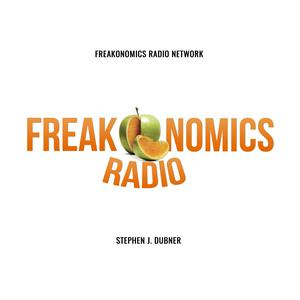
Obtenha o aplicativo gratuito radio.net
- Guardar rádios e podcasts favoritos
- Transmissão via Wi-Fi ou Bluetooth
- Carplay & Android Audo compatìvel
- E ainda mais funções
Obtenha o aplicativo gratuito radio.net
- Guardar rádios e podcasts favoritos
- Transmissão via Wi-Fi ou Bluetooth
- Carplay & Android Audo compatìvel
- E ainda mais funções


Freakonomics Radio
Leia o código,
baixe o aplicativo,
ouça.
baixe o aplicativo,
ouça.

